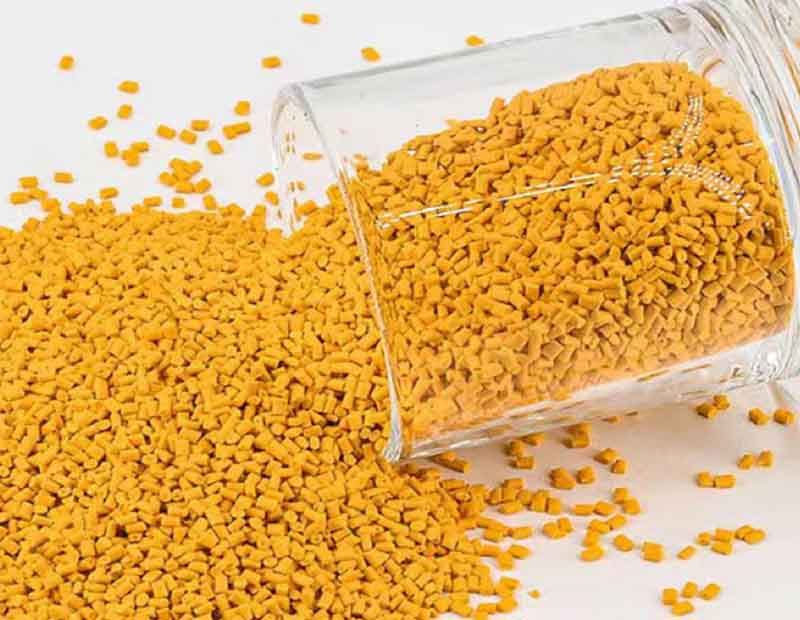In the world of high-performance engineering plastics, few materials combine durability, heat stability, and chemical resistance as effectively as polyphenylsulfone (PPSU). Known for its ability to perform in extreme environments, PPSU has become a trusted solution across industries that demand high-temperature resistance and long-term reliability.
As industries evolve and operating conditions become harsher, the need for advanced thermoplastics like PPSU continues to grow. This article explores the high-temperature resistance of polyphenylsulfone, its material properties, and its industrial application value.

1. What Is Polyphenylsulfone (PPSU)?
Polyphenylsulfone (PPSU) is an amorphous, high-performance engineering thermoplastic belonging to the sulfone polymer family. It is often compared to Polysulfone (PSU) and Polyethersulfone (PES), but PPSU stands out due to its superior heat resistance, impact strength, and hydrolytic stability.
Unlike many conventional plastics that degrade or lose mechanical properties at high temperatures, polyphenylsulfone maintains its structural integrity even in continuous use temperatures up to 180–200°C (356–392°F). This makes it highly suitable for demanding industrial applications.
2. Key High-Temperature Properties of PPSU
The defining feature of polyphenylsulfone is its excellent heat resistance. Below are some of its notable high-temperature properties:
Continuous Service Temperature: Up to 200°C without significant loss of properties.
Glass Transition Temperature (Tg): Approximately 220°C, allowing short-term exposure to higher temperatures.
Dimensional Stability: Retains shape and strength even under thermal cycling.
Flame Resistance: Naturally flame-retardant without additives.
Steam Sterilization Resistance: Capable of withstanding repeated autoclave cycles at 134°C, making it ideal for medical and food applications.
These thermal properties allow PPSU to outperform many engineering plastics, including nylon, polycarbonate, and even some high-performance polymers when exposed to prolonged heat.
3. Why High-Temperature Resistance Matters in Industry
In industrial manufacturing, thermal stability is often the deciding factor when choosing materials. Components exposed to heat, steam, or friction must resist deformation, maintain mechanical strength, and ensure long service life.
Using polyphenylsulfone (PPSU) helps manufacturers achieve:
Reduced downtime by avoiding component failures caused by heat.
Increased safety in applications like aerospace and electrical insulation.
Lower maintenance costs due to durable, long-lasting parts.
Improved reliability in high-stress environments such as sterilization or high-pressure operations.
4. Industrial Applications of PPSU’s Heat Resistance
Thanks to its excellent thermal and mechanical properties, PPSU has gained widespread acceptance in industries requiring high-temperature resistance.
a) Medical and Healthcare Industry
Medical devices and surgical instruments require frequent sterilization, often using steam autoclaves at 134°C. Unlike other plastics, polyphenylsulfone can endure hundreds of sterilization cycles without cracking or losing transparency. Typical applications include:
Surgical handles and trays
Dental instruments
Sterilizable containers and housings
b) Food and Beverage Processing
In food processing, equipment must withstand hot water, steam, and chemical cleaning agents. PPSU is commonly used for:
Fluid handling components
Hot beverage dispensers
Reusable food containers
c) Aerospace and Aviation
Weight reduction and heat resistance are critical in aerospace. PPSU provides both, being lighter than metals yet strong enough to withstand high operating temperatures. Applications include:
Aircraft interior components
Ducting and connectors
Heat-resistant housings
d) Plumbing and Water Systems
PPSU is widely used in hot water plumbing systems where parts are exposed to boiling water and thermal cycling. Examples include:
Pipe fittings
Manifolds
Valve components
e) Electrical and Electronics
As an excellent insulator, PPSU is used in high-voltage and high-temperature electrical components:
Switchgear housings
Connectors
Circuit components
5. Comparison with Other Engineering Plastics
When comparing polyphenylsulfone (PPSU) with other plastics, its advantages are clear:
Versus Polycarbonate (PC): PPSU offers superior heat resistance and chemical resistance, while PC is prone to stress cracking under heat.
Versus Nylon (PA): PPSU provides better dimensional stability and higher continuous-use temperature.
Versus PSU and PES: While PSU and PES are also sulfone polymers, PPSU offers the highest impact resistance and the best hydrolytic stability.
This balance of properties explains why PPSU is often chosen for the most demanding industrial applications.
6. Processing and Semi-Finished Product Availability
PPSU is available in multiple forms, including rods, sheets, films, and molded parts. As semi-finished products, it can be easily machined using CNC techniques to create custom components for specialized industries.
Manufacturers benefit from:
Easy fabrication despite its toughness.
Precision machining into complex shapes.
Custom solutions for industries requiring unique performance characteristics.
7. Long-Term Industrial Value of PPSU
The high-temperature resistance of polyphenylsulfone translates directly into long-term cost savings for industrial manufacturers. Although the initial material cost may be higher than standard plastics, its extended lifespan, reduced need for replacement, and superior performance in harsh conditions make it a cost-effective choice over time.
In addition, PPSU aligns with sustainability goals since its durability reduces waste and frequent replacements in manufacturing systems.
8. Future Outlook
With increasing demand for high-performance thermoplastics, the role of PPSU is set to expand further. Its balance of heat resistance, toughness, and chemical stability makes it indispensable in industries such as healthcare, aerospace, and renewable energy.
As manufacturing technologies evolve, polyphenylsulfone will likely see more applications in 3D printing, advanced electronics, and sustainable industrial solutions.
Conclusion
The high-temperature resistance of polyphenylsulfone (PPSU) makes it a leading material for industrial use, offering exceptional durability, chemical resistance, and processing versatility. From medical devices to aerospace components, PPSU continues to prove its value as a reliable solution for environments where ordinary plastics fail.
By choosing PPSU, manufacturers not only ensure product reliability but also enhance operational efficiency, safety, and long-term sustainability. Its role as a high-performance thermoplastic will continue to shape the future of industrial manufacturing.






